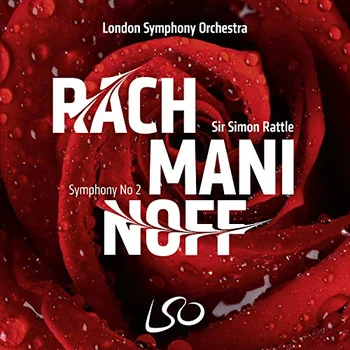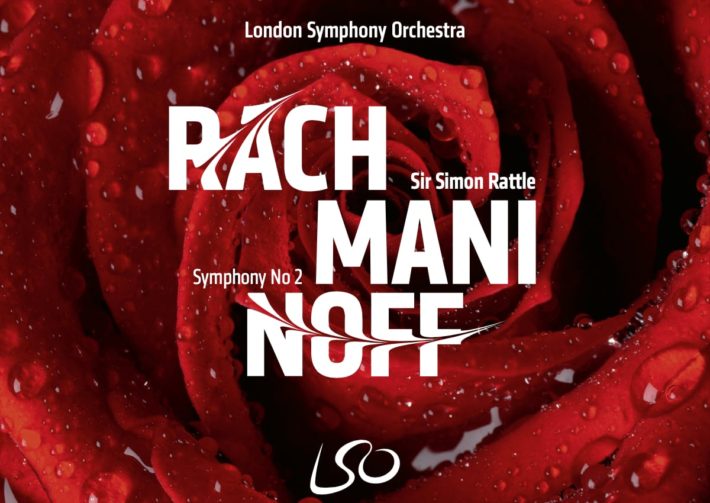This is not the first time the London Symphony Orchestra record of Rachmaninoff’s most popular symphony. A performance led by Andrée Previn in 1973 is rightly considered a classic. Recorded in Kingsway Hall, the orchestral sound is fabulous. Strings have a darkly burnished fullness, well matched by woodwinds and brass. Previn, not always the most emotional of conductors, inspires a reading of passionate intensity, conductor and orchestra seemingly of one mind.

The same qualities are heard on another LSO recording, led by previous music director Valery Gergiev. Gergiev can be wildly inconsistent: sometimes his performances have an almost incendiary power, while others seem disengaged and rudderless. Thankfully, his recording of the Rachmaninoff is an almost complete success. Once again, the London orchestra understands exactly what Gergiev wants, and the performance has an intensity that never falters. Gergiev’s rubato is more extreme than Previn’s, but fully convincing, and there are moments when he encourages (and receives) brass playing of a raucous quality that reminds one of the Russian orchestras conducted by Svetlanov and Kogan. The recording, taken from a liver performance at the Barbican, London, is natural and realistic.
This is also Rattle’s third recording of the symphony. The first, made in the mid-1980’s with the Los Angeles Philharmonic, was not a success. Rattle’s interpretation is not fully formed: his consistently slow tempos and use of extreme rubato disrupts any sense of the longer line. The ebb and flow that is so integral to this music feels carefully planned, but rarely flows in a naturally organic way. The playing of the Los Angeles Philharmonic is excellent, but the engineered sound is string saturated, with much interesting wind detail lost in a wash of strings.
His second performance (available only on DVD/Blu-Ray) is a live performance by the Berlin Philharmonic at their 2011 Philharmonica Europakonzert in Madrid. Rattle’s overall interpretation is the same but is now fully developed, rubato now feels more natural, and the readings of the first and third movements are especially impressive for his sure grip on the sprawling architecture. The Berliners, as always, sound fabulous, and one hears more of the wind writing throughout the piece, at least in part because of close miking.
Rattle’s newest recording, captured at London’s Barbican Hall in 2019, is even more successful. Timings for all four movements are a bit faster; Rattle has a clear sense of each movement’s structure and builds its many climaxes with unerring mastery. The LSO once again plays its collective heart out; more impressive still is how beautifully they fulfill Rattle’s interpretative ideas. The players revel in the excellence of their playing: just sample the brio in the B section of the Scherzo (Tr. 2, 3’30”). Dynamic control is exemplary, and climaxes are carefully prepared and powerfully executed. The strings are voluptuous and velvety, winds by turns delicate and fulsome. The many wind solos are played with great sensitivity and musicianship. And the engineered sound is more impressive than what Gergiev has a decade earlier.
In short, everything is in place to ensure a distinguished, moving performance. However, it frustratingly leaves me unmoved. Rattle and his orchestra ensure Rachmaninoff’s profuse polyphonic web of voices is rendered with gleaming clarity. One continually marvels at the brilliance of Rachmaninoff’s orchestration, at the sheer number of gorgeous melodies he can cram into a work, at his impressive handling of symphonic form. But these facets are meant to serve a greater purpose, and this is where the performance falters.
This symphony is a quintessential example of romantic music. It wears its heart on its sleeve. It plumbs the depths of despair and exults in joy. Nothing is offered in moderation. And yet that is exactly what Rattle offers, a reading that seeks to rein in Rachmaninoff’s sometimes excessive emotional outpourings.
Litton’s recording with the Bergen Philharmonic (BIS), one of the most Romantic readings in recent years, clarifies my point. Sample the opening minute of the first movement in each performance: with Litton the music seems to slowly bring itself to life, establishing a mysterious, anxious atmosphere, building to a brass dominated climax at 3’25.” There is a much-needed release of the anxiety built up over the preceding three minutes. In Rattle’s reading it is the playing itself that one pays attention to. The same is true of main climax in the Allegro moderato: Rattle’s (12’35-13’16”) build up to the climax is impressively managed, but Litton engineers an emotional catharsis (16’43”-17’25”) that is almost entirely absent from Rattle’s performance. (Litton takes the exposition repeat while Rattle does not).
This is the first LSO release to appear since Rattle’s surprise announcement that he is leaving London to become music director at Bavarian Radio Symphony Orchestra. This added a bittersweet element to my listening; in the last few years, this team have produced impressive recordings of Beethoven, Berlioz, Debussy and Janáček. This newest release is impressive but frustrating. What makes the Previn, Gergiev, and Litton recordings so successful is how they glory in the excessive emotions of Rachmaninoff’s music. Rattle does not, and that leaves one feeling emotionally short-changed.
Recommended Comparisons
Previn/Seraphim | Previn/EMI | Gergiev | Litton
Rachmaninoff – Symphony No. 2
London Symphony Orchestra
Simon Rattle – Conductor
LSO, hybrid SACD LSO0851



















